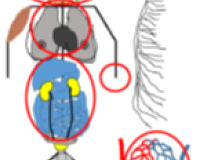Overview
Advanced health assessment serves as the foundational course in advanced practice nurse (APN) education in which students apply clinical decision-making skills to gather appropriate subjective and objective data and to begin to formulate diagnostic hypotheses. UMB’s team of professional nurse educators found that APN education needs a more standardized approach to teaching and evaluating students' clinical skills, similar to medical education. They created the Episodic Tool to illustrate, describe, and organize six major body systems, with a chief complaint and three age and gender combinations. In an evaluation of the Episodic Tool (Quattrini et al. 2022), small groups of students used the tool to identify pertinent history and physical exam components for a specific age and gender, and a faculty-facilitated group discussion followed. A pre/post design was used in a quality improvement project to compare objective structured clinical exam (OSCE) and/or oral clinical exam (OCE) scores. We found a statistically significant increase of 7% in the mean OCE/OSCE scores after implementation of the tool (p < .001). In addition, qualitative feedback from students and faculty suggested the tool effectively enhanced students' critical thinking and clinical decision-making skills and promoted consistency across course sections.
The Episodic Tool is a teaching tool using traditional components of a subjective, objective, assessment, and plan (SOAP) template. Six Episodic Tool keys have been created as faculty guides for APN education. Each key features a specific chief complaint relevant to a major body system: (1) head, eyes, ears, nose, and throat; (2) respiratory; (3) cardiovascular; (4) gastrointestinal; (5) musculoskeletal; and (6) neurological. Brief history scenarios have been created to align with three age and gender combinations for each chief complaint. These scenarios may be used to facilitate discussions about the physical exam including abnormal findings and special tests across the lifespan. The subjective history components of the Episodic Tool include key questions pertaining to the chief complaint and the history of present illness (HPI), using OLDCARTS (onset, location, duration, characteristics, radiation, timing, severity) as a template. Additional history questions relevant to the chief complaint are included throughout the medical/surgical history, health maintenance history, family history, social history, and the review of systems (ROS) sections. The objective component includes a colorful anatomical figure for students to visualize the various body systems. This section also includes two tables: (a) one designed to associate abnormal physical exam findings with underlying etiology, and (b) another that includes special tests with detailed positive results and underlying etiology. The assessment incorporates common differential diagnoses relevant to each chief complaint, while the plan contains information regarding follow-up, laboratory, and diagnostic testing. An additional table is included at the end of the tool to highlight age and gender considerations across the lifespan.
Photos
Applications
Clinical teaching tool with completed faculty guides, for advanced practice nurse education.
Advantages
Resulted in statistically significant increase in mean scores on clinical exams.
Stage of Development
The Episodic Tool is available as a template key and six prepared faculty guides (one for each major body system), with three case scenarios per body system. Given its utility to enhance clinical decision-making skills, we believe that teaching strategies such as the Episodic Tool should be incorporated into advanced health assessment curricula to standardize the preparation of APN students for clinical courses.
Licensing Potential
Available for licensing & collaborations.
NC 3/4/2024
Contact Info
Office of Technology Transfer
620 W Lexington St., 4th Floor
Baltimore, MD 21201
Email: [email protected]
Phone: (410) 706-2380
